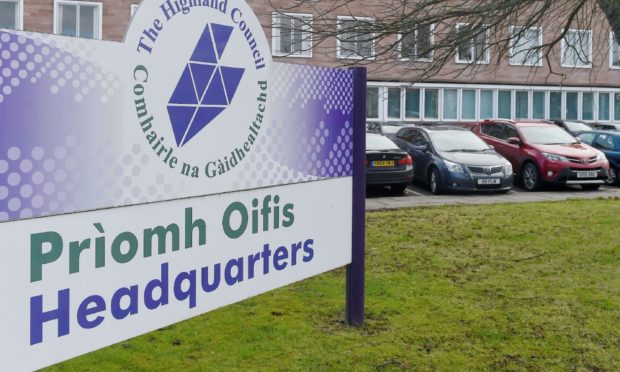A lockdown legacy could see Highland councillors travel less and save money in expenses by conducting more business online.
Highland Council members earned £1,591,343 in salaries and expenses this year, compared to £1,578,885 in 2019.
However, the amount reimbursed for expenses fell by £24,155 from £206,903 last year to £182,748 in 2020. This included a drop in mileage charges from £147,046 to £128,100.
Council leader Margaret Davidson believes members will continue to re-think how they work as a result of the Covid-19 pandemic which has made them embrace more online meetings.
“I’m absolutely sure lockdown will bring an acceleration of the practice. Every councillor is questioning their expenses all the time. Using IT is making a huge difference instead of making a journey and there have been good savings around that.”
She said although some business needs to take place face-to-face she is “very picky” about the meetings she travels to in the central belt.
“Transport is something we need to work on. I’m sure lockdown will bring an acceleration of the practice quite significantly.
“Many community councils are now meeting online and when you think that could take you 60-70 miles there and back that’s a lot of time and mileage savings. As a really good bonus we are polluting the environment less and I can see it becoming a regular thing, particularly in winter.”
As the highest paid councillor, the leader earns £40,764 which, with expenses, totals £46,050, up from £44,949 the previous year.
She expects habits changed during lockdown will continue when restrictions lift: “If you ask me in a year’s time I’d be surprised if many of the habits we have acquired over the pandemic are not still with us and that will have a positive effect on the budget.”
The figures for all 81 councillors have been released by the council. The highest expenses figure of £10,980.97 was paid to Skye councillor John Finlayson, who chaired the care, learning and housing committee and then the education committee.
He claimed the amount, including £8,334 for mileage, on top of his £26,292 salary.
Mr Finlayson said he travels extensively in his ward, to schools and to Inverness and further afield in his role: “My travel costs may be high but they reflect the work I do, the diversity of areas I am involved in and my commitment to represent my ward as best I can including also attending local community council and other meetings.”
He expects to be using IT more in future: “The saving of time from not doing my 164 round trips to Inverness…has been both useful in terms of productivity and of course in terms of saving money and will continue.”
Councillor Graham Mackenzie, chairman of the audit and scrutiny committee, said the effects of lockdown will probably impact on expenses, along with a continuing emphasis from the chief executive to cut down on non-essential expenditure.
“It will be a long time before the council is filled in the way it used to be. A large number of staff have enjoyed (working remotely) and are keen to keep doing it. For members it’s less clear as they enjoy the cut and thrust of the debating chamber and there will still be a need for that.
“But will lockdown help reduce the amount of members’ expenses? I think it probably will. There is no doubt it will be high on the agenda.”
Friends of the Earth Scotland air pollution campaigner Gavin Thomson said longer-term home working will cut the number of journeys and lower air pollution and climate emissions from transport and could save money.
“Hopefully, Highland Council can make it easier for councillors and staff to work from home, and to have video conferencing rather than travel to meetings.”
“Through public investment in broadband instead of spending billions on bigger roads, we could address the need for reliable connections and respond to this societal change.”
